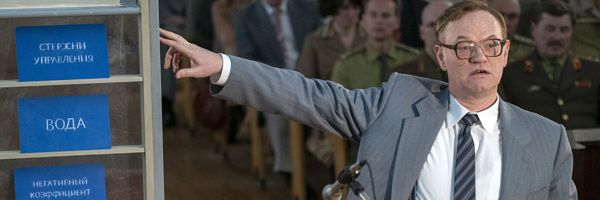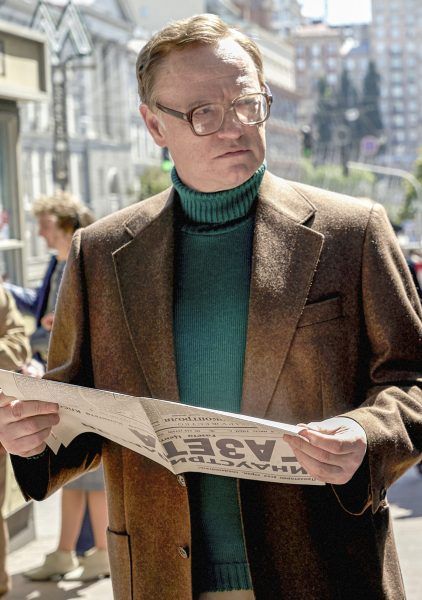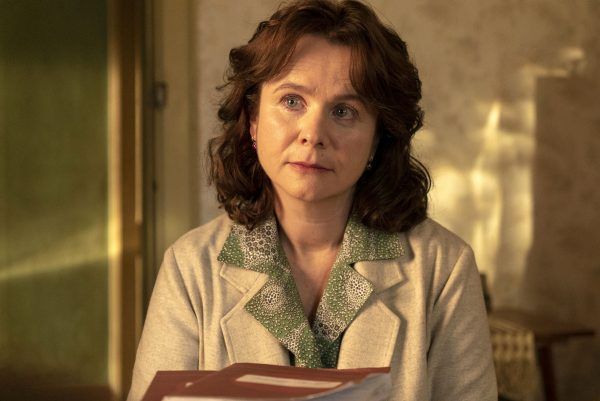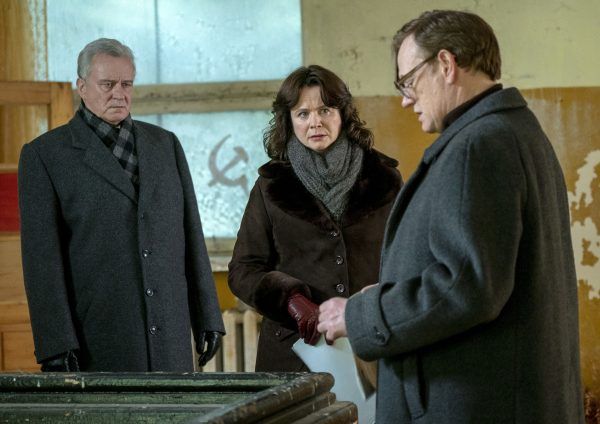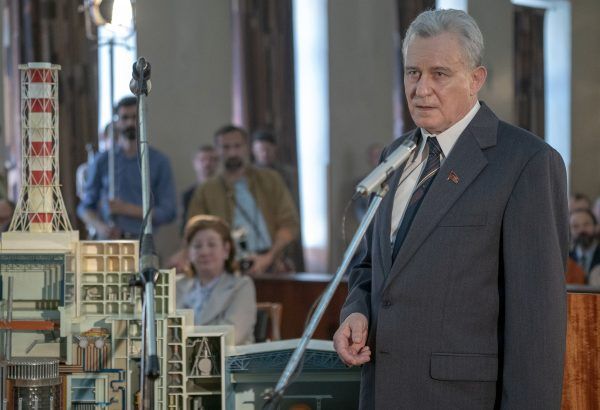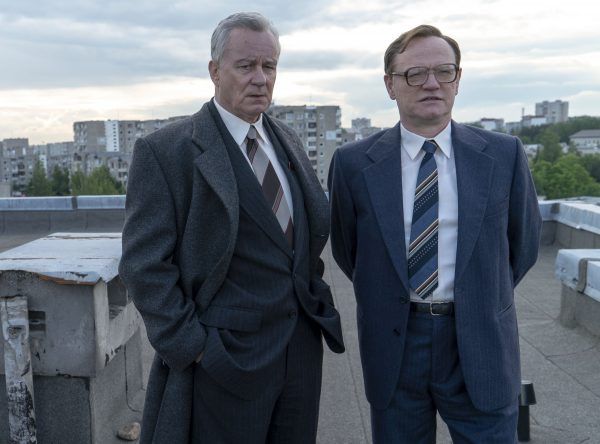From creator/writer Craig Mazin and director/co-executive producer Johan Renck, the five-part HBO mini-series Chernobyl explores how the 1986 nuclear accident become one of the worst human-made catastrophes in history. After the Chernobyl Nuclear Power Plant in Ukraine, Soviet Union suffered a massive explosion that released radioactive material across Ukraine, Belarus and Russia, and as far as Scandinavia and western Europe, countless brave men and women sacrificed their own lives, both knowingly and unknowingly, in an attempt to save Europe from unimaginable disaster.
During this 1-on-1 phone interview with Collider, filmmaker Johan Renck talked about being drawn to the truth of the story, approaching Chernobyl like a five-hour movie, the freedom he got in developing his vision for the scripts, how the project changed him, the casting process, shooting that scene on the Bridge of Death, and how he feels he needs to take a break from work before deciding what that next thing will be.
Collider: This mini-series is just so incredibly well done. It seems like it must be so overwhelming to try to tackle all of this subject matter in five episodes.
JOHAN RENCK: Luckily that wasn’t so much my problem as Craig Mazin’s problem, writing the series. A lot of these things come down to the fact that it’s how it appears on the page. It all starts there. I was obviously intrigued by the subject matter, initially. I’m Swedish, and I very well remember the accident. I was living in Stockholm, at the time. So, I’m really grateful that I could focus on my job. Many times when you get into these things, you have to assume a certain responsibility and try to make whatever the script is dictating, and embrace and embody that, but this script was undeniable from the onset. For me, being able to focus on being a filmmaker rather than anything else is an amazing position to be in. I’m still in awe when I look at this, in terms of the mathematics of the script and taking care of all of the aspects within these five hours, without succumbing to tropes or any pure exposition. It’s just a phenomenal piece of writing, so that made my life a lot easier.
How did you get involved with this, as not only the director, but directing all of it?
RENCK: As a mini-series, I wouldn’t have had it any other way. That was never a question. When they approached me, it was about the whole thing. The script was on my table and I was infatuated by the title alone because I knew it was very much down my alley. I’m drawn to stuff with a certain darkness, and darkness with beauty within it. As a Scandinavian, I like hopelessness and the weird austerity in the hopelessness of things. I’m very much drawn to melancholy and those kinds of emotions. So, I knew just by seeing the title page, that a lot of that would be in there. I had also just come back from a two-year venture in eastern Europe, on another mini-series, and admittedly, another eastern European story wasn’t on my wishlist, to be honest. But after reading the first episode, I asked for more scripts, and I read them and it was very clear that there was no way that I was gonna be able to stay away from this. That’s how it began. I’m getting very savvy at this, so I know that one very important thing, in doing these things, is knowing who you’re gonna work with because you’re gonna spend the best part of two years on something and it’s gonna be challenging on a lot of levels. So, we had a meeting, and I met with Jane Featherstone and Carolyn Strauss, who were producing this, and Craig [Mazin], who is the writer and a producer on it. They came to New York, and we had an afternoon in which we just talked about the general approach, on their end of things, and what they wanted from me. After that meeting, the whole thing was very much a sealed deal because I felt they wanted to do this like a movie. They wanted to have a filmmaker’s point of view on it. They gave me a lot of room to be a filmmaker. They actually gave me all the room I could ever ask for.
You mentioned shooting this like a movie. Did you shoot all five episodes at once? Did you shoot this like you would have a film?
RENCK: Yeah, I insisted on that. You have to cross board it and shoot it like a movie. It has nothing traditional television about it. It is basically a long movie, chopped into five parts, so that’s how you have to deal with it. It was shot like that, and every aspect of it was dealt with, in that way. I’ve been working in television for a long time, and I know all aspects of television. There were never any compromises on it, and there was never any desire to do anything but what was best for the project.
From what you knew about Chernobyl going into this, did doing this project change your perspective, at all, on what happened, or do you feel like you look at what happened differently now?
RENCK: I thought I knew a lot about Chernobyl, but it turns out that I knew nothing. This is the first thing I’ve ever done that’s based on reality. Everything else I’ve ever done has been pure fiction. And going into it, initially I was like, “Well, my task here is to make the best possible film experience out of this, even if we have to bend the truth,” but I became a staunch advocate for the opposite, very shortly into the process, because then I became obsessed with the truth, to honor all of the participants and those hundreds of thousands of people who were affected, and also because it became an agenda of its own. When truth becomes an agenda of its own, it becomes a remarkable thing. This is not a drama documentary, in that way. This is fiction, but truth of subject matters. Craig did an incredible job, in terms of researching all of that, but it was the same with my due diligence. I read all of the books and saw all of the documentaries. I had to really dig deep to understand all aspects of it, and I know everything about Chernobyl now, I’d say. Obviously, you know about some aspects of the danger and the magnitude of the catastrophe, but then the human impact and all of those people who put themselves in there for the greater good, I had no idea about the magnitude of that and the sacrifices that were made. It became a truly profound experience, understanding and learning about it. I’ve gotta be honest, I work in a pretty silly profession. I make films for people to get entertained by. But all of the sudden, for the first time in my career, there was another purpose in it. There is a purpose to telling this story and honoring the participants, and I feel pride in regards to that. I feel pride to be involved with this. I had the most amazing time ever, creatively, because of the nature of how we did this. And with my job, as a director, I was completely fulfilled in what I could do and how we did it all. It was a beautiful joy, on all levels, and there was a purposefulness to it all, which I’ve never experienced. It changed me.
You have such a terrific group of actors in this. How did you approach casting for this? Were there any of the actors that you immediately thought of for their role, or did you consider a variety of different actors for these roles?
RENCK: It’s an organic process. We spent a lot of time casting. We saw thousands of actors for this. We spent months in a small room in London to see all of these people. Obviously, what you want is the best actors you can find because that’s really important. You want people with very fine-tuned instruments, who have the capacity to deliver on a lot of levels. What happens is also that the characters, on paper, start transforming once you meet the actor. It’s a very complex process because the actual actor will affect the character, and there’s a little dance between what’s on the page and what the actor’s doing, which slowly evolves into something. And then, when you cast that person, the requirements for whoever the next person should be changes. Like with all these things, it’s all about instincts. There’s no rule book or manual to follow. It’s all what you respond to emotionally, and who you feel has an interesting approach or handle on it, or who had a particular type of exuberance or charisma that is captivating. We could write a book about the casting process. We worked with Nina Gold and Robert Sterne in London, who are arguably the best of the best, when it comes to casting, and they would curate. The choices they had made were great to begin with, and we were in a position where we had a lot of very talented and extraordinary people in front of us.
The scene that stayed with me, throughout the five episodes, and really haunted me the most was the one with all of the people on the bridge. The realization of that moment is so just haunting and tragic. How did you want to approach shooting that? Did you know just how important of a moment that would be for the viewer?
RENCK: All scenes serve different purposes. The bridge scene, to me, was always something slightly impressionistic, and it had to have a non-descriptive, non-practical aspect to it. I always wanted that scene to have a dream aspect of it, to some extent. I wanted it to be beautiful and truthful. The authenticity is there. What I love about my job is that I can approach different scenes based on what they service and what they’re doing. I can make a lot of choices there. To me, that scene was always very, very important. That bridge is a real place. It’s still, today, known as the Bridge of Death. It’s about a kilometer away from the power plant. The rumor is that everybody who went out that night to go and watch the disaster from that bridge are no longer with us. Whether that’s true or not, I don’t know, but at the same time, you couldn’t help but feel the realness of these characters. Everybody on that bridge, on the night that we shot that, it had such profound resonance. There had to be a visceral and an authentic experiential feel to that scene.
What’s next for you? Do you know what you’re going to do next, or have you thought about what you’d like to do next?
RENCK: No. It’s an interesting place to be right now because I have no interest in anything else. I haven’t even read a script in a long time now, and I have no interest in reading any scripts either because I feel really fulfilled, on every little check box of my job, in terms of creative fulfillment. It’s weird because this is my job. I have to do my job, and I love doing my job, but at the same time, I’ll take it day by day, right now. Right now, I have no interest in anything, to be honest. Whatever ends up on my desk, I’m not even interested in reading it right now. But, who knows? Everything you do will affect who you are, as a filmmaker. I’m still just trying to wrap my head around what I just experienced, and I think it’ll be a little while until I come out of this with a certain type of innocence and loss. I’m still very much in this, to be honest, so we’ll see what happens. I’m gonna take a little break and hang with family, and then see what comes out of that.
Have you thought about whether you would want to do another TV project like this, or would you want to focus on film?
RENCK: Yeah, I love the mini-series format because it’s the best of both worlds. It’s character-driven and plot-driven, at the same time, and you have enough time to do all of that, but it never extends content. So, I guess it depends on the project. I feel very, very happy about being in the world of television because there’s no box office angst there, meaning that there are no forces or powers that be that compromise things with some perceived idea of what’s successful or not. So, you have a lot of creative freedom and a lot of alleviated pressure, in that aspect, which I really like. But I also do love the 90-minute format because it’s much less forgiving and probably more difficult to make something really, really compelling in that format, and I can’t help feeling that I would love to go back and explore that again. We’ll see what happens.
The series finale of Chernobyl airs on Monday, June 3rd on HBO.

